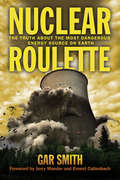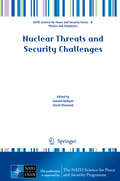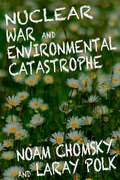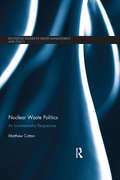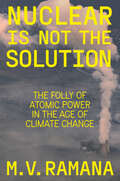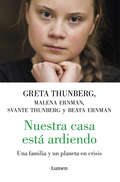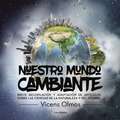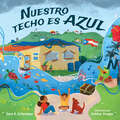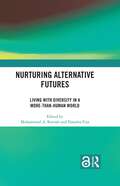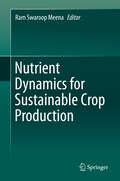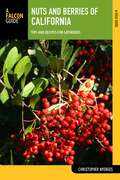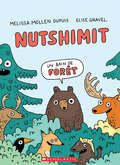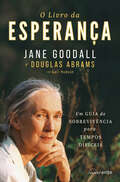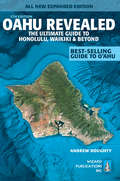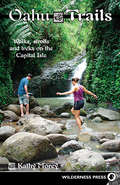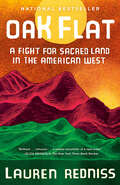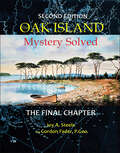- Table View
- List View
Nuclear Roulette: The Truth About the Most Dangerous Energy Source on Earth
by Gar SmithNuclear power is not clean, cheap, or safe. With Three Mile Island, Chernobyl, and Fukushima, the nuclear industry's record of catastrophic failures now averages one major disaster every decade. After three US-designed plants exploded in Japan, many countries moved to abandon reactors for renewables. In the United States, however, powerful corporations and a compliant government still defend nuclear power-while promising billion-dollar bailouts to operators. Each new disaster demonstrates that the nuclear industry and governments lie to "avoid panic," to preserve the myth of "safe, clean" nuclear power, and to sustain government subsidies. Tokyo and Washington both covered up Fukushima's radiation risks and-when confronted with damning evidence-simply raised the levels of "acceptable" risk to match the greater levels of exposure. Nuclear Roulettedismantles the core arguments behind the nuclear-industrial complex's "Nuclear Renaissance. " While some critiques are familiar-nuclear power is too costly, too dangerous, and too unstable-others are surprising:Nuclear Rouletteexposes historic links to nuclear weapons, impacts on Indigenous lands and lives, and the ways in which the Nuclear Regulatory Commission too often takes its lead from industry, rewriting rules to keep failing plants in compliance. Nuclear Roulettecites NRC records showing how corporations routinely defer maintenance and lists resulting "near-misses" in the US, which average more than one per month. Nuclear Roulettechronicles the problems of aging reactors, uncovers the costly challenge of decommissioning, explores the industry's greatest seismic risks-not on California's quake-prone coast but in the Midwest and Southeast-and explains how solar flares could black out power grids, causing the world's 400-plus reactors to self-destruct. This powerful exposé concludes with a roundup of proven and potential energy solutions that can replace nuclear technology with a "Renewable Renaissance," combined with conservation programs that can cleanse the air, and cool the planet.
Nuclear Threats and Security Challenges
by David Diamond Samuel ApikyanWith the dissolution of the Soviet Union the nuclear threats facing the world are constantly evolving and have grown more complex since the end of the Cold War. The diversion of complete weapon systems or nuclear material to rogue nations and terrorist organizations has increased. The events of the past years have proved the necessity to reevaluate these threats on a level never before considered. In recognition that no single country possesses all of the answers to the critical scientific, institutional and legal questions associated with combating nuclear and radiological terrorism, the NATO Advanced Research Workshop on "Preparedness for Nuclear and Radiological Threats" and this proceeding was structured to promote wide-ranging, multi-national exploration of critical technology needs and underlying scientific challenges to reducing the threat of nuclear/radiological terrorism; to illustrate through country-specific presentations how resulting technologies were used in national programs; and to outline the role of legal, policy and institutional frameworks in countering nuclear/ radiological terrorism. One key outcome of this book is better understanding of the interdependent contributions from across the international community of the scientific and technological components and the legal, policy and institutional components to combating nuclear and radiological threats.
Nuclear War and Environmental Catastrophe
by Noam Chomksy Laray Polk"There are two problems for our species' survival--nuclear war and environmental catastrophe, " says Noam Chomsky in this new book on the two existential threats of our time and their points of intersection since World War II.While a nuclear strike would require action, environmental catastrophe is partially defined by willful inaction in response to human-induced climate change. Denial of the facts is only half the equation. Other contributing factors include extreme techniques for the extraction of remaining carbon deposits, the elimination of agricultural land for bio-fuel, the construction of dams, and the destruction of forests that are crucial for carbon sequestration.On the subject of current nuclear tensions, Chomsky revisits the long-established option of a nuclear-weapon-free zone (NWFZ) in the Middle East, a proposal set in motion through a joint Egyptian Iranian General Assembly resolution in 1974.Intended as a warning, Nuclear War and Environmental Catastrophe is also a reminder that talking about the unspeakable can still be done with humor, with wit and indomitable spirit.
Nuclear Waste Politics: An Incrementalist Perspective (Routledge Studies in Waste Management and Policy)
by Matthew CottonThe question of what to do with radioactive waste has dogged political administrations of nuclear-powered electricity-producing nations since the inception of the technology in the 1950s. As the issue rises to the forefront of current energy and environmental policy debates, a critical policy analysis of radioactive waste management in the UK provides important insights for the future. Nuclear Waste Politics sets out a detailed historical and social scientific analysis of radioactive waste management and disposal in the UK from the 1950s up to the present day; drawing international comparisons with Sweden, Finland, Canada and the US. A theoretical framework is presented for analysing nuclear politics: blending literatures on technology policy, environmental ethics and the geography and politics of scale. The book proffers a new theory of "ethical incrementalism" and practical policy suggestions to facilitate a fair and efficient siting process for radioactive waste management facilities. The book argues that a move away from centralised, high capital investment national siting towards a regional approach using deep borehole disposal, could resolve many of the problems that the high stakes, inflexible "megaproject" approach has caused across the world. This book is an important resource for academics and researchers in the areas of environmental management, energy policy, and science and technology studies.
Nuclear is Not the Solution: The Folly of Atomic Power in the Age of Climate Change
by M.V. RamanaNUCLEAR POWER WILL SLOW OUR RESPONSE TO CLIMATE CHANGE AND INCREASE THE RISK OF WEAPONS PROLIFERATION AND CATASTROPHETHE CLIMATE CRISIS has propelled nuclear energy back into fashion. Its proponents argue we already have the technology of the future and that it only needs perfection and deployment. Nuclear Is Not the Solution demonstrates why this sort of thinking is not only naïve but dangerous.Even beyond the horrific implications of meltdown and the intractable problem of waste disposal, nuclear is not practicable on such a large scale. Any appraisal of future energy technology depends on two important parameters: cost and time. Nuclear fails on both counts. It is more costly than its renewable competitors wind and solar. And, importantly given the need for rapid transformation, it is slow. A plant takes a decade to come online. If you include permits and fundraising, this adds another decade. And we should not forget the deep roots it has in the defense industry.M. V. Ramana&’s powerful book destroys any illusion that nuclear is our answer to climage change, untangling technical arguments into simple and sensible language. Importantly, Nuclear Is Not the Solution also unmasks the powerful groups with vested interests in the maintenance of the status quo, currently working hard to greenwash a spectacularly dirty industry.
Nuestra Tierra cambia: Una enciclopedia de accidentes geográficos (¡Arriba la Lectura!, Level N #87)
by Darleen RamosNuestra Tierra siempre está cambiando. Los terremotos, el viento, el agua y el hielo cambian la forma del planeta. ¿Sabes cuál es el cañón más grande del mundo? NIMAC-sourced textbook
Nuestra casa está ardiendo: Una familia y de un planeta en crisis
by Varios Autores Greta ThunbergEsta es la historia de una familia que afronta su propia crisis enfrentándose a una crisis aún mayor: la de nuestro planeta #HuelgaPorElClima «Quiero que actúen como si nuestra casa estuviera ardiendo. Porque así es.» Con estas palabras cerraba Greta Thunberg su discurso en el foro de Davos el 25 de enero de 2019, cinco meses después de iniciar su huelga por el clima. Desde entonces, la activista ha sumado a millones de personas a su lucha para salvar el planeta. Pero ¿qué llevó a una adolescente de quince años a tomar la decisión de plantarse en solitario ante el Parlamento de su país y desde allí intentar cambiar el mundo? Esta historia, escrita por la familia Thunberg y narrada por la voz de la madre, la cantante de ópera Malena Ernman, comienza cuando la pequeña Greta cae en una depresión severa y deja de comer por el impacto de un documental sobre el cambio climático. Sus padres emprenden una batalla feroz por su salud hasta que le diagnostican síndrome de Asperger, autismo de alto funcionamiento y TOC. Al poco tiempo, la hija menor, Beata, muestra signos de trastornos similares. Este es el grito de auxilio de una niña para convencer, primero a los suyos y luego al mundo, de que la sociedad está tan enferma como el planeta y de que es urgente que reaccione. Una narración sobrecogedora de una familia moderna que supera su propia crisis desafiando una crisis global. La crítica ha dicho...«Esta época necesita gente como Greta. Las ideas están en el aire y hace falta alguien que las formule.»Svetlana Alexiévich «Escuchemos a Greta. Tal vez todavía estemos a tiempo.»J. M. G. Le Clézio «El relato extraordinario de cómo una familia logra erguirse, con gran lucidez moral, ante la tremenda responsabilidad de estar vivos en el momento en que nuestras decisiones colectivas inmediatas están determinando el futuro de la vida en la Tierra. [...] Greta Thunberg ya ha inspirado un hito global: este libro guarda la esencia de cómo ganaremos.»Naomi Klein «La historia de Greta es sorprendente y emocionante. [...] No creo que exista un precedente similar en toda la historia: que una adolescente [...] lidere un movimiento de millones de personas.»David Wallace-Wells (autor de El planeta inhóspito), El País «Greta arde de autenticidad, es un puro aullido de desesperación y de incredulidad ante nuestra ceguera.»Rosa Montero «La familia Thunberg-Ernman narra de manera amena y con una sinceridad apabullante su paso devastador por los infiernos.»Eva Stegen, The Friday «Una lectura poderosa y convincente, distópica y optimista, personal y objetiva.»Marie Pettersson, Sydsvenskan «Un grito [...], un testimonio escrito ahora que el presagio de un desastre avanza. La propia crisis de una familia es, en realidad, una prueba de su inteligencia.»Sverker Sörlin, Dagens Nyheter «Un libro conmovedor.»Arno Widmann, Berliner Zeitung «Una mirada sorprendente e introspectiva de una familia que vive adaptándose a los reveses del destino.»Steffen Trumpf, dpa «Valiente y tenaz.»Anna Hellgren, Expressen «Una historia extraordinaria y emocionante.»Alexandra von Poschinger, Passauer Neue Presse
Nuestras manzanas favoritas / Our Favorite Apples (Storytelling Math)
by Grace Lin¡Libro de cartón grueso ahora disponible en español-inglés bilingüe! La ganadora del Honor de Caldecott, Grace Lin, celebra las matemáticas para todos los niños, ¡en todas partes!Board book now available in bilingual Spanish-English! Caldecott Honor winner Grace Lin celebrates math for every kid, everywhere!Manny, Olivia y Mei van a recoger manzanas y clasifican sus manzanas rojas, verdes y amarillas por colores. Pero luego encuentran una manzana que tiene los tres colores. ¿Qué deberían hacer? Una exploración juguetona de la clasificación, la categorización y la amistad.Storytelling Math celebra a los niños usando las matemáticas en sus aventuras diarias mientras juegan, construyen y descubren el mundo que les rodea. Historias alegres y actividades manuales hacen que sea fácil para los niños y sus adultos explorar las matemáticas cotidianas juntos. Desarrollado en colaboración con expertos en matemáticas de TERC, una organización educativa con enfoque en ciencia, tecnología, ingeniería y matemáticas (STEM, por sus siglas en inglés), bajo una subvención de la Fundación Heising-Simons.Manny, Olivia, and Mei go apple picking and sort their red, green, and yellow apples by color. But then they find an apple that&’s all three colors. What should they do? A playful exploration of sorting, classifying, and friendship.Storytelling Math celebrates children using math in their daily adventures as they play, build, and discover the world around them. Joyful stories and hands-on activities make it easy for kids and their grown-ups to explore everyday math together. Developed in collaboration with math experts at STEM education nonprofit TERC, under a grant from the Heising-Simons Foundation.
Nuestro Mundo Cambiante: Breve recopilación y adaptación de artículos sobre las Ciencias de la Naturaleza
by Vicens OlmosUn libro que habla sobre las ciencias y se puede asemejar a 2001, Una Odisea del Espacio Este libro es una recopilación y adaptación de artículos sobre las Ciencias de la Naturaleza y el Hombre. Además se habla también sobre la actualidad y las perspectivas del Cambio Climático que está afectando a nuestro planeta.
Nuestro techo es azul
by Sara E. EcheniqueThis heartfelt story of resilience follows two siblings as they work to recover and rebuild after Hurricane Maria destroys their home in Puerto Rico.Esta emotiva historia de resiliencia sigue a dos hermanos en su proceso de recuperación luego de que el huracán Maria destruyera su casa en Puerto Rico.Before an intense hurricane hits their home in Puerto Rico, Antonio told his sister vibrant stories each night. During the storm, they huddled with their parents in a closet and hear the storm blow the roof right off their home. After the storm, their family uses a temporary blue tarp for a roof, and Antonio stops speaking. Gradually the siblings imagine their blue roof playfully—as the ocean above them or a parachute helping them fall from the sky. As the narrator helps her little brother feel safe once more--and after the family and community build a new roof--the little boy begins to speak again.Antes de que un fuerte huracán dañara su casa en Puerto Rico, todas las noches Antonio contaba a su hermana animadas historias. Durante la tormenta, se acurrucaron con sus padres en un clóset desde donde escucharon como la tormenta hizo volar el techo de su hogar. Luego de la tormenta, la familia utiliza un toldo azul provisorio como techo, y Antonio deja de hablar. Poco a poco, los hermanos comienzan a pensar en su techo azul de maneras divertidas: imaginan que es el océano sobre sus cabezas o un paracaídas para lanzarse desde el cielo. A medida que la narradora ayuda al hermanito a recuperar su seguridad —y luego de que la familia y la comunidad construyen un nuevo techo— el pequeñito comienza a hablar otra vez.
Nuisance Animals: Backyard Pests to Free-Roaming Killers
by John Trout Jr.We commonly experience problems with wildlife because of our expansion into the animal's domain. Many mammals must now share our busy world and learn to survive alongside of man. From the urban districts to the rural areas, we must cope with animals and learn how to prevent and control wildlife damages. When Animals Become a Nuisance... A Practical Wildlife Guidebook for Everyone Learn how to... keep animals out of the garden and away from crops keep animals from destroying property keep animals away from valuable shrubs and trees avoid animals that stalk humans protect pets and livestock from predators :- identify problem animals, tracks and sign prevent and control wildlife damage Nuisance Animals takes a close look at several wildlife species and the damage they cause: Deer, beaver, rabbits, squirrels, woodchucks, muskrats, raccoons, coyotes, black bear, mountain lion, bobcats, wild pigs, skunks, fish-eating birds and prairie dogs are among the 40 species of animals discussed in this book.
Nurturing Alternative Futures: Living with Diversity in a More-than-Human World
by Natasha Fijn Muhammad A. KaveshDeveloping upon emerging environmental humanities and multispecies anthropological theories, this book provides a fresh perspective on how we might rethink more-than-human relationality and why it is important to "nurture alternative futures". The diverse chapters examine the life trajectories of people, animals, plants, and microbes, their lived experiences and constituted relationality, offering new ways to reinterpret and reimagine a multi-species future in the current era of planetary crisis. The ethnographic case studies from around the world feature a combination of biological and cultural diversity with analyses that prioritize local and Indigenous modes of thinking. While engaging with Mongolian herders, Indigenous Yucatec Mayan, Congolese farmers, rural Pakistani donkey keepers, Australian heritage breed farmers, Croatian cheesemakers, Japanese oyster aquafarmers, Texan corn growers, Californian cannabis producers, or Hindu devotees to the Ganges River, the chapters offer a grounded anthropological understanding of imagining a future in relationality with other beings. The stories, lived experiences, and mutual worlding that this volume presents offer a portrayal of alternative forms of multispecies coexistence, rather than an anthropocentric future.
Nutrient Dynamics for Sustainable Crop Production
by Ram Swaroop MeenaThe cropping system is one of the important components of sustainable agriculture, since it provides more efficient nutrient cycling. As such, balanced fertilization must be based on the concept of sustainable crop production. Feeding the rapidly growing world population using environmentally sustainable production systems is a major challenge, especially in developing countries. A number of studies have highlighted the fact that degradation of the world's cultivated soils is largely responsible for low and plateauing yields. Soil is lost rapidly but only formed over millennia, and this represents the greatest global threat to nutrient dynamics in agriculture. This means that nutrient management is essential to provide food and nutritional security for current and future generations. Nutrient dynamics and soil sustainability imply the maintenance of the desired ecological balance, the enhancement and preservation of soil functions, and the protection of biodiversity above and below ground. Understanding the role of nutrient management as a tool for soil sustainability and nutritional security requires a holistic approach to a wide range of soil parameters (biological, physical, and chemical) to assess the soil functions and nutrient dynamics of a crop management system within the desired timescale. Further, best nutrient management approaches are important to advance soil sustainability and food and nutritional security without compromising the soil quality and productive potential. Sustainable management practices must allow environmentally and economically sustainable yields and restore soil health and sustainability. This book presents soil management approaches that can provide a wide range of benefits, including improved fertility, with a focus on the importance of nutrient dynamics. Discussing the broad impacts of nutrients cycling on the sustainability of soil and the cropping systems that it supports, it also addresses nutrient application to allow environmentally and economically sustainable agroecosystems that restore soil health. Arguing that balanced fertilization must be based on the concept of INM for a cropping system rather than a crop, it provides a roadmap to nutrient management for sustainability. This richly illustrated book features tables, figures and photographs and includes extensive up-to-date references, making it a valuable resource for policymakers and researchers, as well as undergraduate and graduate students of Soil Science, Agronomy, Ecology and Environmental Sciences.
Nutrition for Outdoor Recreation
by Marisa MichaelOutdoor recreation is all about connecting with nature, feeling the joy of being outdoors, and finding satisfaction in doing hard things. Many adventurers seek out the best gear, clothing, and information to ensure success and safety in their sport. However, nutrition is also a key component that many are missing to optimize their performance outdoors. Fueling properly for both adventure and life can promote longevity in outdoor recreation, prevent injury, and prevent backcountry emergencies such as heat stroke or dehydration. Beyond this, the right nutrition knowledge implemented well can make the difference between an amazing hike and a miserable one. Nutrition for Outdoor Recreation takes readers through the basics of energy systems in the body to specific, practical, and actionable steps for different outdoor activities and scenarios. This guide will equip outdoor athletes with a foundation of evidence-based nutrition knowledge and a plan for any kind of adventure, energized and fueled to take on the wilderness.
Nuts and Berries of California: Tips and Recipes for Gatherers (Nuts and Berries Series)
by Christopher NyergesCalifornia's diverse geography overflows with many types of edible plants. Through the seasons, this forager's paradise offers a continually changing list of wild, harvestable treasures. Nuts and Berries of California guides you to the edible wild foods and healthful herbs of the West. This valuable reference guide will help you identify and appreciate the wild bounty of California. Inside you'll find: detailed descriptions for edible nuts and berries; tips on finding, preparing and consuming them. Use Nuts and Berries of California as a field guide or as a delightful armchair read. No matter what you're looking for, this guide will enhance your next backpacking trip or easy stroll around the garden, and may just provide some new favorites for your dinner table.
Nutshimit : Un bain de forêt
by Melissa Mollen DupuisSee below for English description.Deux grandes créatrices du Québec, Melissa Mollen Dupuis et Elise Gravel, s’unissent pour nous offrir une oeuvre marquante, Nutshimit : Un bain de forêt. Partez à l’aventure et découvrez le Nutshimit de Melissa Mollen Dupuis, brillamment illustré par Elise Gravel. Ce documentaire ludique, raconté à la première personne du singulier, s’adresse à tous les amateurs de la nature, petits et grands. Au fil des pages, Melissa nous amène au coeur de la forêt, sa forêt. Elle y décrit le territoire si important pour sa nation et pour toutes les premières nations du Canada. De la légende de la création de la terre à la vie innue d’aujourd’hui, le lecteur découvre le Nutshimit, l’espace physique et social, là où l’on pratique les activités traditionnelles (mordiller de l’écorce de bouleau, allumer un feu, cuire un pashimeu (pâté de bleuets), tresser le foin d’odeur…). En plus d’y trouver tous les éléments si chers à la vie en forêt (animaux, oiseaux, flore, faune, coutumes…) Melissa introduit des mots innus pour nous donner un bain complet de sa culture. On y retrouve aussi des activités chères aux peuples autochtones comme cuire la bannique, faire le sirop d’érable ou boucaner le saumon. Le ton familier et joyeux de Melissa ainsi que les anecdotes tirées de ses expériences font de cet ouvrage un outil indispensable pour connaître la vie en forêt.Elise Gravel has teamed up with Innu author Melissa Mollen Dupuis to bring us Nutshimit : In the Woods. The Innu word Nutshimit signifies the physical and social space to practice traditional activities and language. In this first-person account, Melissa and Elise take us on a journey through the culture, from creation legends to Innu life today. Melissa also takes us through a forest bath. “A what?” you may ask. You’ll just have to read the book and see! Along the way, readers will learn Innu nature vocabulary (did you know that kakacshu is the Innu word for crow?). And of course, this being an Elise-illustrated book, the pages are populated with hilarious characters and plenty of fun details. Melissa’s colloquial and open tone and anecdotes from her lived experiences make the book extra personal. English title: Nutshimit: In the Woods
Não mais do que as penas de uma asa
by Alessandro CaselliThief é uma jovem pega-rabilonga que decide não deixar seu ninho porque é muito apegada as suas paredes e todos os objetos contidos. Mas esses objetos também pesaram em sua vida, ao ponto de forçá-la a fazer uma escolha drástica: continuar a viver uma existência solitária e escrava de seus desejos ou mudar de direção e enfrentar uma vida talvez igualmente solitária, mas livre das correntes com as quais a própria Thief havia se amarrado a seus “tesouros”.
O Albatroz e os Piratas de Galguduud: Uma História de Patente de Corso do Século XXI
by Federico Supervielle BergésA história de uma Carta de Corso no Século XXI Se os Estados não controlam o mar, até que ponto um homem pode ir para proteger seus interesses? Os acampamentos de piratas que pontilham a costa da Somália ameaçam seqüestrar qualquer navio que se aproxime deles, mas os países desenvolvidos não parecem capazes de lidar com o problema. A indústria global de energia está à beira do colapso. Um empresário pode enfrentar os piratas? O estado somali falido será capaz de controlar sua própria costa? Um jovem marinheiro de Cádiz, fugindo de seus pesadelos pessoais, é escolhido para acabar com os inimigos do magnata, mas nem mesmo o Oceano Índico está suficientemente longe de seu passado. Conforme os eventos se desenrolam, um enredo mais complexo por trás dos ataques é percebido. Sem perceber, Pablo se vê arrastado para o centro de uma conspiração internacional em que ele só terá a ajuda de sua tripulação e seu navio: o Albatroz.
O Derradeiro Guia para a Caminhada: Como Planear com Sucesso uma Viagem de Mochila, um Acampamento, ou uma Caminhada
by John JohnsonEstá a pensar começar a fazer caminhadas? Gostaria de aprender a fazer caminhadas como um profissional? Se respondeu sim a estas perguntas então este livro é para si. Aprenda como começar e tudo o que precisa de saber sobre o desporto e como fazer uma caminhada como um profissional. Estas técnicas e dicas de acampamento vão ajudá-lo a começar e a caminhar melhor do que nunca! Introduzindo os segredos que os profissionais utilizam para escalar os terrenos mais difíceis! Com décadas de estratégias comprovadas, este ebook vai mostrar-lhe o caminho mais rápido e eficaz para aprender este desporto! O que está incluído: - Para Começar. - Listas. - Que Equipamento Usar. - Como Fazer uma Caminhada. - Preparação. E MUITO MAIS! Se quer ser mais forte e eficaz a fazer caminhadas, então este guia é para si. Aviso Legal: Este autor e ou o(s) proprietário(s) dos direitos autorais não fazem quaisquer reivindicações, promessas, ou garantias no que respeita à precisão, plenitude, ou adequação dos conteúdos deste livro, e renunciam expressamente à responsabilidade por qualquer erro e omissão nos conteúdos apresentados. Este produto serve apenas como referência. Por favor consulte um profissional antes de agir sobre qualquer conteúdo aqui expresso.
O Livro da Esperança
by Jane Goodall Douglas AbramsUm guia de sobrevivência para tempos difíceis. Este é um olhar raro e profundo sobre a natureza da esperança, mas também sobre o coração e o espírito de uma mulher que revolucionou a visão do mundo que nos rodeia. O livro-testemunho de uma das mulheres mais icónicas do nosso tempo. No mundo tão conturbado em que vivemos, como manter a esperança? Se considerarmos o agravamento da crise climática, uma pandemia, a perda da biodiversidade e a crescente instabilidade política, manter o otimismo pode ser um grande desafio. No entanto, a esperança nunca foi tão necessária. Neste livro imperioso, Jane Goodall eDouglas Abrams refletem, num diálogo estimulante e intimista, sobre um dos elementos da natureza humana mais desejado e menos compreendido. A lendária primatologista britânica explana, através do seu percurso de vida, os seus «quatro motivos de esperança»: O Maravilhoso Intelecto Humano, A Resiliência da Natureza, O Poder dos Jovens e o Indomável Espírito Humano.Com base nas experiências queinfluenciaram as suas descobertas e crenças, Jane Goodall conta-nos como se tornou uma mensageira da esperança e deixa uma reflexãosobre algumas questões vitais: Como manter a esperança quando a causa parece perdida? Como podemos cultivar a esperança nos nossosjovens? Qual é a relação entre a esperança e a ação? «O otimismo contagiante de Jane Goodall e o apelo estimulante à ação fazem deste livro uma leitura essencial para aqueles que se preocupam com o futuro do planeta.» — Publishers Weekly «Um diálogo envolvente e esclarecedor sobre esperança que amplifica o mantra de Jane Goodall: Juntos podemos! Juntos faremos!» Booklist «Não me parece que pudesse haver um momento mais oportuno para ese livro surgir nas nossas vidas... É o livro pelo qual ansiávamos.» Jay Shetty, autor de Pensa Como Um Monge «Uma mensagem poderosa de proteção dos direitos intrínsecos de todos os seres vivos.» Leonardo DiCaprio, ator e ativista ambiental
O'Nights
by Cecily Parks"In Cecily Parks' beautiful poems, the natural world teeters between being and seeming--the seeming a simulacrum projected onto the world by a mind's yearning, taxonomy and dread. Deeply metaphysical, and deeply attentive to our spiritual as well as physical uses and abuses of nature, O'Nights implicates language's --indeed, lyric poetry's--sad role in this endeavor."--Susan WheelerIn O'Nights, Cecily Parks constructs stunning manifestations of a modern Thoreauvian wilderness, investigating how the natural world gives shape to the self, body, and emotions. These lyrical, transcendental poems study the duality of nature's feminine and masculine identities, and in its simplicity, offers a space where humankind truly belongs.From "Bell":This progress, as in the wind-scalloped snowmeadowpretending to be moon. This love that sets us scramblingover the map's last ridge, our red hoods brightin shrunken sky. This metallic weather in which weare the ore. This alder. These crimson-tipped willowsreverberating next to a river of turquoise ice. Thisfollowing the deep tracks of one coyote steppingwhere another has stepped. This wildernessthat we trespass, burning like berries in the juniperand becoming the air in the belfry.Cecily Parks is the author of the chapbook Cold Work (Poetry Society of America, 2005) and the collection Field Folly Snow (University of Georgia Press, 2008), which was a finalist for the Norma Farber First Book Award and the Glasgow/Shenandoah Prize for Emerging Writers. Her poems have appeared in Boston Review, Kenyon Review, Orion, Tin House, Virginia Quarterly Review, the Yale Review, and elsewhere. She lives in Cambridge, Massachusetts.
Oahu Revealed: The Ultimate Guide To Honolulu, Waikiki & Beyond
by Andrew Doughty Leona BoydThe finest guidebook ever written for O'ahu. Now you can plan your best vacation--ever. This all new expanded fifth edition is a candid, humorous guide to everything there is to see and do on the island. Written by the author of the best-selling guides, Maui Revealed, Hawaii The Big Island Revealed and The Ultimate Kauai Guidebook. Explore with him as he reveals breathtaking trails, secluded beaches, pristine reefs, delicious places to dine, relaxing places to stay, exciting waterfalls, colorful valleys and so much more. Every restaurant, activity provider, business and resort is reviewed personally and anonymously. This book and a rental car are all you need to discover what makes O'ahu so exciting.* The most up-to-date and accurate information available anyplace with up-to-the-minute changes posted to our website* Frank, brutally honest reviews of restaurants, hotels and activities show you which companies really are the best...and which to avoid--no advertisements* Driving tours let you structure your trip your way, point out sights not to be missed along the way and are complemented by over 150 spectacular color photographs* 21 specially-created maps in an easy-to-follow format with landmarks--so you'll always know where you are on the island* Clear, concise directions to those hard-to-find places such as deserted beaches, hidden waterfalls, lush rain forests, spectacular coastlines and scores of other hidden gems listed nowhere else* Exclusive chapter on O'ahu's beaches with detailed descriptions including ocean safety* Unique Adventures & Attractions chapter, over 60 pages of exciting activities from ATVs to whale watching, and over 200 restaurant reviews* Fascinating sections on Hawai'i's history, culture, language and legends* Companion website with links to every business, events calendar, over 80 resort reviews complete with aerial photos--so you'll know if oceanfront really means oceanfront Oahu Revealed covers it all--from the top of the Ko'olaus to the lost sunken island off Kane'ohe. This is the best investment you can make for your O'ahu vacation. Whether you are a first time visitor or a long time kama'aina, you will find out more about O'ahu from this book than from any other source. Discover the island of your dreams with Oahu Revealed.
Oahu Trails
by Kathy MoreyThis guide to 45 great hikes on Oahu includes 2 new trips in the inland rainforests of Kailua and Waimanalo. Explore the beaches, cliffs, and rainforests, and learn about native plants, Hawaiian history, and local mythology.
Oak Flat: A Fight for Sacred Land in the American West
by Lauren RednissA powerful work of visual nonfiction about three generations of an Apache family struggling to protect sacred land from a multinational mining corporation, by MacArthur &“Genius&” and National Book Award finalist Lauren Redniss, the acclaimed author of Thunder & Lightning.&“Lauren Redniss has produced a supernova. . . . A vivid, searing, indelible act of witness.&”—Patrick Radden Keefe, New York Times bestselling author of Say Nothing Oak Flat is a serene high-elevation mesa that sits above the southeastern Arizona desert, fifteen miles to the west of the San Carlos Apache Indian Reservation. For the San Carlos tribe, Oak Flat is a holy place, an ancient burial ground and religious site where Apache girls celebrate the coming-of-age ritual known as the Sunrise Ceremony. In 1995, a massive untapped copper reserve was discovered nearby. A decade later, a law was passed transferring the area to a private company, whose planned copper mine will wipe Oak Flat off the map—sending its natural springs, petroglyph-covered rocks, and old-growth trees tumbling into a void. Redniss&’s deep reporting and haunting artwork anchor this mesmerizing human narrative. Oak Flat tells the story of a race-against-time struggle for a swath of American land, which pits one of the poorest communities in the United States against the federal government and two of the world&’s largest mining conglomerates. The book follows the fortunes of two families with profound connections to the contested site: the Nosies, an Apache family whose teenage daughter is an activist and leader in the Oak Flat fight, and the Gorhams, a mining family whose patriarch was a sheriff in the lawless early days of Arizona statehood. The still-unresolved Oak Flat conflict is ripped from today&’s headlines, but its story resonates with foundational American themes: the saga of westward expansion, the resistance and resilience of Native peoples, and the efforts of profiteers to control the land and unearth treasure beneath it while the lives of individuals hang in the balance.
Oak Island Mystery Solved: The Final Chapter
by Joy A. SteeleLegends, questions and theories abound about Oak Island, Nova Scotia, and tales of buried treasure there. For more than two centuries, the island has been studied, searched, probed and cursed all the while failing to give up its secrets.Joy Steele’s ground-breaking book, The Oak Island Mystery, Solved (CBU Press 2015), was born of her own curiosity about “Oak Island gold,” and her application of historical research to the mystery caused quite a stir among treasure hunters, historians, archaeologists and folks just plain interested in what was and is going on there. Her version of events and her take on the now mythical treasure attracted the attention of a great many Island-watchers, drawing the interest of some and the ire of others. Among the people “interested” are many who in the past studied, explored and written about Oak Island. One of those people is professional geologist Gordon Fader, whose expertise has been sought out over the years by numerous explorers, treasure hunters, consultants and researchers whose names appear frequently throughout Joy’s enquiries and books, and many others. In her first book, Joy made the very convincing argument that Oak Island’s true treasure is its multi-layered history – its role in 18th-century world affairs. Not only have the bold and sometimes foolhardy physical efforts of the treasure hunters over the past two-and-a-half centuries likely been in vain, but have almost certainly destroyed much of the evidence of what actually took place there. Over the past couple of years, Joy Steele and Gordon Fader have been working together to solidify Joy’s theories on the tantalizing evidence of human activity on Oak Island. In the process, their collaboration has not only strengthened Joy’s earlier revelatory conclusions that there was manufacturing activity on the Island in the early 1700s but, remarkably, uncovered still more evidence unexplored until now.
